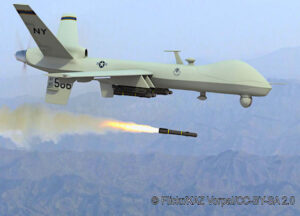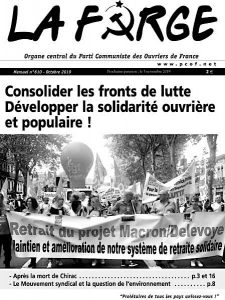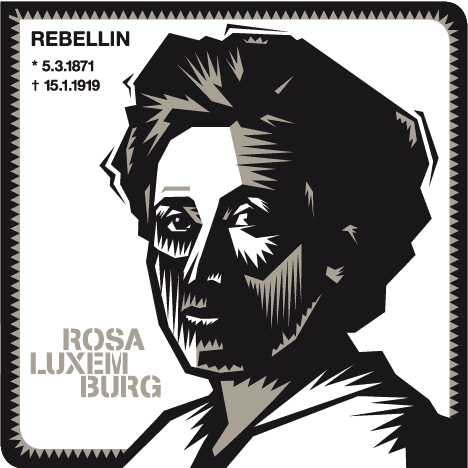Last Sunday I joined up with a bigger, far tougher fight. Some 500 of us gathered between Merkel’s Chancellery Building and the Reichstag, where the Bundestag convenes. The rally, organized by the peace movement with a motto best translated as “Don’t Arm, Disarm!”, called on legislators to reject a big hike in the armament budget, now up for debate. The finance plan for 2021 faces a giant deficit to cover losses due to tightening pandemic restrictions, compensating workers without work and hotels, shops, restaurants and theaters without customers. All the same, the ruling coalition of Christian Democrats (CDU and CSU) and Social Democrats (SPD) is charging ahead with its aggressive plans, including new multipurpose frigates for the German navy, its largest surface warships since World War Two, transport helicopters for NATO, 38 Eurofighter planes at 5.5 billion euros each. Add on faster Tornados for the base in Büchel, ready at any moment to pick up the twenty American atomic bombs storaged there, speed eastward and drop them on Russians. Each one has a destructive power up to thirteen times that of the Hiroshima bomb – which killed 70,000. The plans look more and more like one more war. It would be the last one!

Wardrohne. PIC: Vopal, Flickr, CCC-BY-SA2.0
Also under debate is a decision on drones. The Bundeswehr forces already use unarmed ones; debates about whether to buy killer drones from the USA or Israel or to produce German ones would bury basic ethical questions; should GIs sitting comfortably in Florida or Nevada be able to kill citizens of Afghanistan, Somalia, Niger or elsewhere, without trial, by using the giant US Army base and drone relay station in Ramstein, Germany? Seen by many as a violation of German law, Bundestag decisions and morals, this is being fought out in the courts. Should German drones do the same?
Such questions of war and peace, so crucial to the world, were a heavy burden for our little crowd, freezing in the icy December air near the Spree River and watchfully monitored by omnipresent cops making sure we wore face masks and stayed a meter and a half apart.
After so many peace rallies over the years, valiantly organized but with mostly familiar, largely aging faces, one might wonder whether it was worth it. I admit to chickening out after two hours, before they stretched a symbolic blue band to the Reichstag building (but not, as was hoped, encircling it).
But before I limped off I noted some hopeful omens. Best of all, the unions were very visible. Not only big, leftish-leaning Verdi, the adversary of Amazon, but the teachers, too, and IG Metall, with over two million members the biggest in Germany and, it claims, in the world. And the main speaker was Reiner Hoffmann, head of the entire union federation, the DGB, comparable to the AFL-CIO, who warmed at least our hearts with the fact that, though small in size, similar peace rallies were taking place that same day in nearly 100 towns all over the country – with many union members.
Crucial as they are, it wasn’t only the unions. Leaders of Fridays for Future, the brave hookey-playing kids group, also Greenpeace and other ecology organizations were now supporting “Don’t Arm, Disarm!” – opposing more billions for weapons. While virus fears and icy winds kept numbers too low to encircle the huge Reichstag, a growing unity might influence some inside who would be voting.
Maybe some, and every voice counts, but reality dispels any illusions. For who were they? It may not be easy for Americans, used to two main parties for 160 years, to decipher the scene here, with so many trying to balance the boat – and steer it. You may feel as mixed-up as that late great wit (and catcher) Yogi Berra, when he ordered a snack: “You better cut the pizza in four pieces because I’m not hungry enough to eat six.” And in fact there are six caucuses in the Bundestag.
The far-right Alternative for Germany (AfD) featured angry name-calling at its recent congress between one faction, almost openly fascist, and the other which chooses to mask its position behind a bourgeois, coat-and-tie approval of democratic methods (deceiving nobody but an unusually accommodating media). Its rabid in-fighting helped cut its popularity from 12-13% down to 9-10%. Of course both its factions favor more armaments, lots of them, as modern and heavy as possible.
The smallest of the six parties, the Free Democrats (FDP), with its genteel, pro-business right-wing stance, also favors armed drones and any other modern “security” measures.
The strongest caucus, Merkel’s Christian Democrats (CDU) with its sister party, Bavaria’s Christian Social Union (CDSU), always pushes for more weaponry. Annegret Kramp-Karrenbauer, Minister of Defense, has made it clear; Germany must lead Europe as a NATO equal in a renewed transatlantic partnership with the new Biden government, one based on nuclear weaponry. And despite the financial strain caused by corona, it must keep developing new European weapons like the Eurofighter, the NH90 helicopter and the Eurodrone. Some generals already discuss heir future use.
What about the Greens? This once young, left-leaning party has slithered further down a slippery slope. It grew fast after the Fukushima catastrophe in 2011, achieving second place in popularity, but success has had dire results. Its stress on environment is degrading into well-phrased schemes hatched out with big industrial companies; its participation in eleven state governments, six of them with the CDU, has had few notable results. In Baden-Wuerttemberg it heads the government and maintains a cosy friendship with the auto giant Daimler-Benz. Most shocking for many old stalwarts is in Hesse, where it joined its CDU government partner in using tough police to break up 400 road blockades and a hundred tree houses trying to block the destruction of part of a 300-year-old oak and beech forest to make way for a highway expansion.
Even more important, the Green leaders have abandoned earlier anti-military principles and become the most fervent adherents of East-West confrontation. On trade? “We Greens in the Bundestag are calling on the Federal Government to abandon its support for the Nord Stream 2 pipeline and to stop construction…No deals with Putin!”- On cooling off tension? “If we are in the next government we must meet with Macron to discuss robust European military deployment.” And weapons? “What matters are NATO capabilities.“ But not all the members are going along.
How about the Social Democrats, still paired with their traditional CDU rivals in a coalition government? Their poll ratings have slipped catastrophically to only 15% (the CDU-CSU are at 35%, the Greens at 19%). In this past year their new co-chairs and a few deputies made daring statements opposing US atomic bombs at the base in Büchel – or any atomic bombs. But the party’s powers-that-be, somehow reminiscent of the Democratic leadership in Washington, are busy squashing such mutiny, and men like Vice-Chancellor Olaf Scholz and Foreign Minister Heiko Maas seem to have the stronger biceps. We will see what influence the peace movement has had when the votes are taken.
And the LINKE, the Left? It remains the only party consistently voting against rearmament and military adventures. But it has dropped to an 8% low. It, too, has sharp disagreements; some leaders want to drop full opposition to NATO membership and foreign military deployment, conditions demanded by the SPD and the Greens for joining it in a coalition government. At present, the polls would not give these three the necessary 50% anyway, and many in the LEFT insist that such compromises would end their party’s role as the only genuine peace party. In this coming year of elections in many states and nationally in September, lots of switches and turns may be expected. Next to colossal corona-connected economic problems, war and peace will be a basic, fateful factor.
++++++
Although this Berlin Bulletin has become far too long, I will include two interesting quotations. Who said them?
„Today we are seeing new efforts to fragment the world, draw new dividing lines, create coalitions not built to achieve something but directed against someone, anyone, to create the image of an enemy just as was the case during the Cold War … We are sliding into times when, instead of a balance of interests and mutual guarantees, it is only fear and the balance of mutual destruction which are preventing nations from engaging in direct conflict.“
++++++
“For the past twenty-five years all Europe has been arming itself to a hitherto unimaginable extent … Is there no exit from this dead-end street except in an annihilating war?… I insist: Disarmament, with its guarantee of peace, is possible, indeed comparatively easy to accomplish, and Germany, more than any other … has the power and the motivation to achieve it.”
The first quotation was by Vladimir Putin. The second was written in February 1893 by old Karl Marx’s friend and collaborator Friedrich Engels, who was born just 200 years ago, on November 28, 1820. Did too few listen?
+++++++
Six weeks ago I managed to forget everything, turning from virus lockdowns, election predictions, the month-long shut-down of the elevator to my 8th floor apartment and just simply enjoy a few moments. A few relatives liked the result and suggested I send it, though dated, to all readers:
This morning, from my breakfast table, I looked across the wide expanse of green, yellow, orange trees, a fine ensemble – and was lucky enough to be rewarded with a magnificent rosy sunrise over the entire sky. Joyfully adding to this, off on the horizon, a flock of perhaps two hundred birds, wonderfully circling and soaring, most probably my favorites, the handsome black rooks, just arrived here in their winter quarters like every year in late October, truly a heart-lifting sight. But in addition to this – almost too much – a radio present; a Bach cantata (BWV 180) including a duet with the warm, vibrating tones of a cello and a clear, smooth soprano, all together almost enough to bring a tear or two of breathless joy. How wonderful it is to be able to have such an experience, how lucky I was, brief as it was!
And last but not least, for your reading in required confinement, or for the holidays, may I recommend my book, “A Socialist Defector: From Harvard to Karl-Marx-Allee”. Some have praised it highly.
More by Victor Grossman
.
Only the author is responsible for the content of this article.
It doesn’t have to be the opinion of the editorial board.















































Diskussion ¬